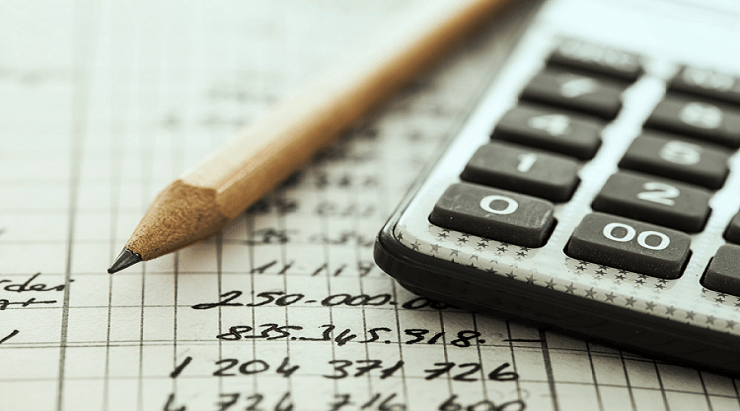What Are the Odds for Winning the Lottery? The Shocking Truth Behind Your Chances
/0 Comments/in Betting articles, Blog /by DanImagine this: you’re holding a freshly printed lottery ticket, heart pounding as the numbers are drawn. One by one, you start matching them — could this be your life-changing moment?
The dream of waking up a millionaire is something that’s crossed almost everyone’s mind at some point. But here’s the question that few dare to ask: what are the odds of actually winning the lottery?
Spoiler alert — they’re not great. In fact, you’re statistically more likely to be struck by lightning, attacked by a shark, or become a movie star than to hit that elusive jackpot.
Still, millions of us play every week, fuelled by hope, excitement, and that tiny whisper of possibility.
In this guide, we’ll pull back the curtain on the numbers behind the dream — from the UK National Lottery and EuroMillions to the Postcode Lottery and even international draws like the US Powerball and Irish Lotto.
By the end, you’ll know exactly how slim your chances are… and why we can’t stop playing anyway.
The UK National Lottery: Lotto, Thunderball, Set for Life
Lotto (the flagship National Lottery game)
The classic UK Lotto (sometimes simply called “Lotto”) is the game most people think of when they think of the National Lottery. In the current format:
- You must pick 6 numbers from a pool (currently 59) (or whatever the game rules are).
- The odds of matching all six (i.e. winning the jackpot) are 1 in 45,057,474.
- For the “5 numbers + bonus ball” tier, the odds are about 1 in 7,509,579.
- Matching 5 (but not the bonus) is about 1 in 144,415.
- Matching 4 is roughly 1 in 2,180.
- Matching 3 is about 1 in 97 (often a small prize).
- Matching 2 is about 1 in 10.3 (often a small “free ticket” or nominal prize).
If you include any prize (i.e. from matching just 2 up to the jackpot), your overall chance is about 1 in 9.3 per ticket.
So: winning something is not too bad (about 1 in 9), but winning the jackpot is extremely unlikely (around 1 in 45 million).
The “any prize” odds reflect that many people will at least get a small win, but of course those small wins are rarely life-changing.
Thunderball
Another National Lottery game is Thunderball, which tends to have better odds for the top prize (though the top prize is smaller than Lotto’s). Key figures:
- Jackpot (match 5 + the Thunderball): 1 in 8,060,598.
- For lower tier prizes, your odds are better (e.g. matching the Thunderball only gives you a small amount). One source reports a 1 in 29 chance of winning a small prize (by matching the Thunderball).
So compared to Lotto’s 1 in 45 million, Thunderball’s jackpot odds are much more favourable (though still very low) — about 5 to 6 times better, but the prize is correspondingly smaller.
Set for Life
Set for Life is a lottery in which the top prize is paid over time (for example, a fixed monthly payment over many years). Some important odds:
- Jackpot (matching all required numbers): approx 1 in 15,347,470.
- Overall odds of winning any prize: about 1 in 12.4.
So again, better than Lotto jackpot odds, but the top prize is structured differently and smaller in expectation.
EuroMillions (UK and Pan-Europe)
EuroMillions is a transnational lottery played in several European countries, including the UK. Because it spans multiple countries and has more numbers, the odds are steeper.
- Jackpot (5 numbers + 2 “Lucky Stars”): 1 in 139,838,160.
- Overall odds of winning any prize: 1 in 13.
EuroMillions also has multiple prize tiers. For example:
| Match | Odds |
|---|---|
| 5 + 1 | ~1 in 6,991,908 EuroMillions+1 |
| 5 only | ~1 in 3,107,515 EuroMillions+1 |
| 4 + 2 | ~1 in 621,503 EuroMillions |
| etc. | … |
Because the jackpot pool is huge (across many countries), EuroMillions draws more attention — but the trade-off is that your chance of winning the top prize is vanishingly small.
On top of that, in the UK there is often a supplementary “Millionaire Maker” raffle (or code-based draw) tied to EuroMillions tickets.
The odds of winning that will depend on the number of tickets sold, but one reference reports a chance of around 1 in 3,570,000 for the Millionaire Maker game on a Tuesday.
People’s Postcode Lottery (UK)
The People’s Postcode Lottery works differently. It’s technically more a series of raffles than a traditional lottery. Your ticket is tied to your postcode, and part of your subscription fee goes to charities.
Some key odds:
- On average, the chance of winning any prize is better than 1 in 5.
- The odds of winning one of the bigger prizes (e.g. Postcode Millions, large “street prizes”) is better than 1 in 250,000.
- The odds of winning a £1,000 prize are better than 1 in 2,000.
- In 2024, 87% of players won some prize (which includes small prizes).
So compared to national lotteries, the Postcode Lottery offers relatively high odds of winning something — but the big prizes are much more modest, and prizes are shared among people in the same postcode sometimes.
Comparison with Other National Lotteries
To get a broader perspective, let’s glance at some other national lotteries and compare.
Ireland (Irish Lotto)
Ireland’s national lotto tends to have more favourable jackpot odds than EuroMillions but still fairly steep. One source states that the Irish Lotto jackpot odds are 1 in 10,737,573 (for their local game).
That’s much more favourable (i.e. better) than EuroMillions’ 1 in 139 million, though of course the jackpots are smaller.
United States (Powerball, Mega Millions, etc.)
US lotteries are huge in scale, with enormous jackpots, so the odds tend to be extremely low:
- Powerball (in many jurisdictions) has jackpot odds in the realm of 1 in 292 million (depending on the version).
- Mega Millions has odds of roughly 1 in 302 million (again, depending on the rules and drawing).
Those huge numbers reflect the huge pools and many, many possible combinations.
Because the US lotteries vary by state and by the exact rules, you’ll see some differences. But the point is: big jackpots, huge odds.
Putting Lottery Odds into Context
Numbers like “1 in 45 million” and “1 in 139 million” are so big they’re hard to grasp. To make that more intuitive, it helps to compare with other rare events. Here are a few comparisons (numbers approximate and illustrative):
- The odds of being struck by lightning in your lifetime are often quoted in the range of 1 in 10,000 to 1 in 100,000 (depending on location, behaviour, and time span).
- Some sources list rarer events like the chance of a fatal shark attack, being attacked by a severe tornado, or winning high-stakes gambling events as more likely than winning a lottery jackpot.
- A popular (though general) list of things more likely than winning the lottery includes: being hit by an asteroid, becoming a movie star, finding true love, etc. Save the Student
- To take one example: in the UK, the long-term odds of being struck by lightning are often given as something like 1 in 500,000 (though that depends on many factors) — much more likely than winning a large lottery jackpot.
So while lottery jackpots are tantalising, they are extremely improbable.
Why Are Lottery Odds So Low?
A few reasons:
- Combinatorics: The more numbers you must match (from a larger pool), the more possible combinations there are. For example, matching 6 numbers out of 59 results in tens of millions of possible combinations.
- Pooling across many entries: Big lotteries like EuroMillions pool players across many countries, so one ticket is competing in a massive set.
- Prize structure: To fund large jackpots, lotteries must maintain very low odds of winning, so that the vast majority of tickets are losing or small winners.
- Rollover and rollover: When no ticket wins the jackpot in one draw, it rolls over (i.e. the prize is carried forward), making jackpots larger — which draws in more tickets — but doesn’t change the per-ticket odds.
It’s also worth emphasising: buying more tickets slightly increases your chance (e.g. buying 2 tickets gives you 2 chances), but it doesn’t alter the structure or the improbability greatly — and your return on investment is still overwhelmingly negative in expectation.
So, What Are the Odds for Winning the Lottery?
To summarise some of the key numbers:
- UK Lotto jackpot: ~ 1 in 45,057,474
- UK Lotto any prize: ~ 1 in 9.3
- Thunderball jackpot: ~ 1 in 8,060,598
- Set for Life jackpot: ~ 1 in 15,347,470
- EuroMillions jackpot: ~ 1 in 139,838,160
- EuroMillions any prize: ~ 1 in 13
- People’s Postcode Lottery (any prize): better than ~ 1 in 5
- People’s Postcode Lottery (big prize): better than ~ 1 in 250,000
- Irish Lotto jackpot (local game): ~ 1 in 10,737,573 (as per one source)
- US lotteries: often in the realm of 1 in many hundreds of millions (for jackpots)
When someone asks “what are the odds for winning the lottery?”, it depends very much on which lottery, which prize tier, and which country. But even for the “best” jackpots among major national lotteries, the odds remain astronomically low.
Final Thoughts: Play Responsibly, Dream Wisely
Lotteries are designed to offer hope, excitement, and the possibility (however slim) of a life-changing win. But the math is clear: the odds are against you, especially for the top prizes. Most players will never win a jackpot.
If you enjoy playing the lottery, it can be a harmless entertainment, provided you treat it as what it is: a low-probability gamble.
Don’t spend what you can’t afford. Keep expectations realistic. And remember: you’re far more likely to meet other rare events (being struck by lightning, etc.) than winning a multi-million jackpot.
That said, understanding “what are the odds for winning the lottery” helps ground the dreaming in reality. And that balance — dreaming plus realism — is a healthier approach to participating in lotteries.









Leave a Reply
Want to join the discussion?Feel free to contribute!